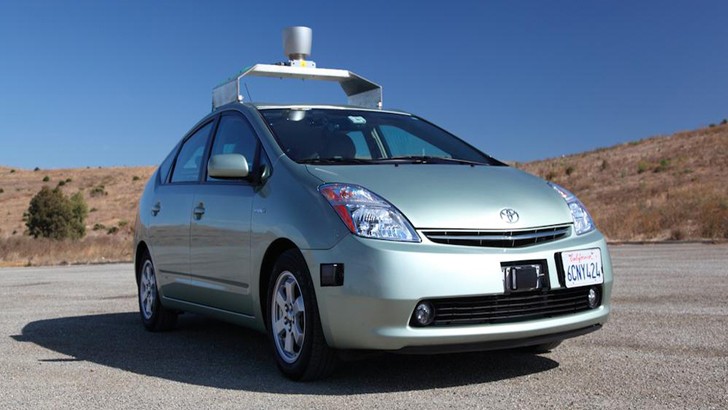There are undoubtedly many challenges that Google is currently facing with the continued development of its self-driving car program, but one thing it must factor in is the driving habits of other drivers, which includes speeding. It is being reported that Google has programmed the cars to allow them to go 10 miles per hour over the speed limit to keep a safe pace with surrounding traffic.
According to the report from Reuters, a Google representative said that driving the speed limit while all other cars are speeding can actually be dangerous, so Google allows its cars to exceed the speed limit by 10 mph (16 kmh) when the conditions are appropriate. While these conditions were specified, we’re assuming it is designed to keep up with cars in highway or interstate driving.
As much sense as this makes, we’re just trying to imagine the conversation as the “driver” of Google’s autonomous car tries to explain to the police officer that the vehicle was driving itself and the technology was just “keeping up with traffic.”
This likely doesn’t apply to Google’s its bubble-shaped, hands-free prototype unveiled earlier in the year as this car will have its speed limited to just 25 mph. Instead, this will likely be part of the software for other autonomous prototypes that Google is currently testing, which include the Lexus RX and Toyota Prius (shown above). Google has been testing out its self-driving cars in the U.S. since 2010, but the BBC reports that these cars will be heading to Europe next year where they have been authorized to drive in the U.K.
The ability to keep up with traffic will be made much easier in the U.S. with the recent announcement that the government eventually wants all cars equipped with a vehicle-to-vehicle technology that lets cars “talk” to each other on the road. That being said, a U.K. Department for Transport spokesman told the BBC that "there are no plans to change speed limits, which will still apply to driverless cars."
As much sense as this makes, we’re just trying to imagine the conversation as the “driver” of Google’s autonomous car tries to explain to the police officer that the vehicle was driving itself and the technology was just “keeping up with traffic.”
This likely doesn’t apply to Google’s its bubble-shaped, hands-free prototype unveiled earlier in the year as this car will have its speed limited to just 25 mph. Instead, this will likely be part of the software for other autonomous prototypes that Google is currently testing, which include the Lexus RX and Toyota Prius (shown above). Google has been testing out its self-driving cars in the U.S. since 2010, but the BBC reports that these cars will be heading to Europe next year where they have been authorized to drive in the U.K.
The ability to keep up with traffic will be made much easier in the U.S. with the recent announcement that the government eventually wants all cars equipped with a vehicle-to-vehicle technology that lets cars “talk” to each other on the road. That being said, a U.K. Department for Transport spokesman told the BBC that "there are no plans to change speed limits, which will still apply to driverless cars."
